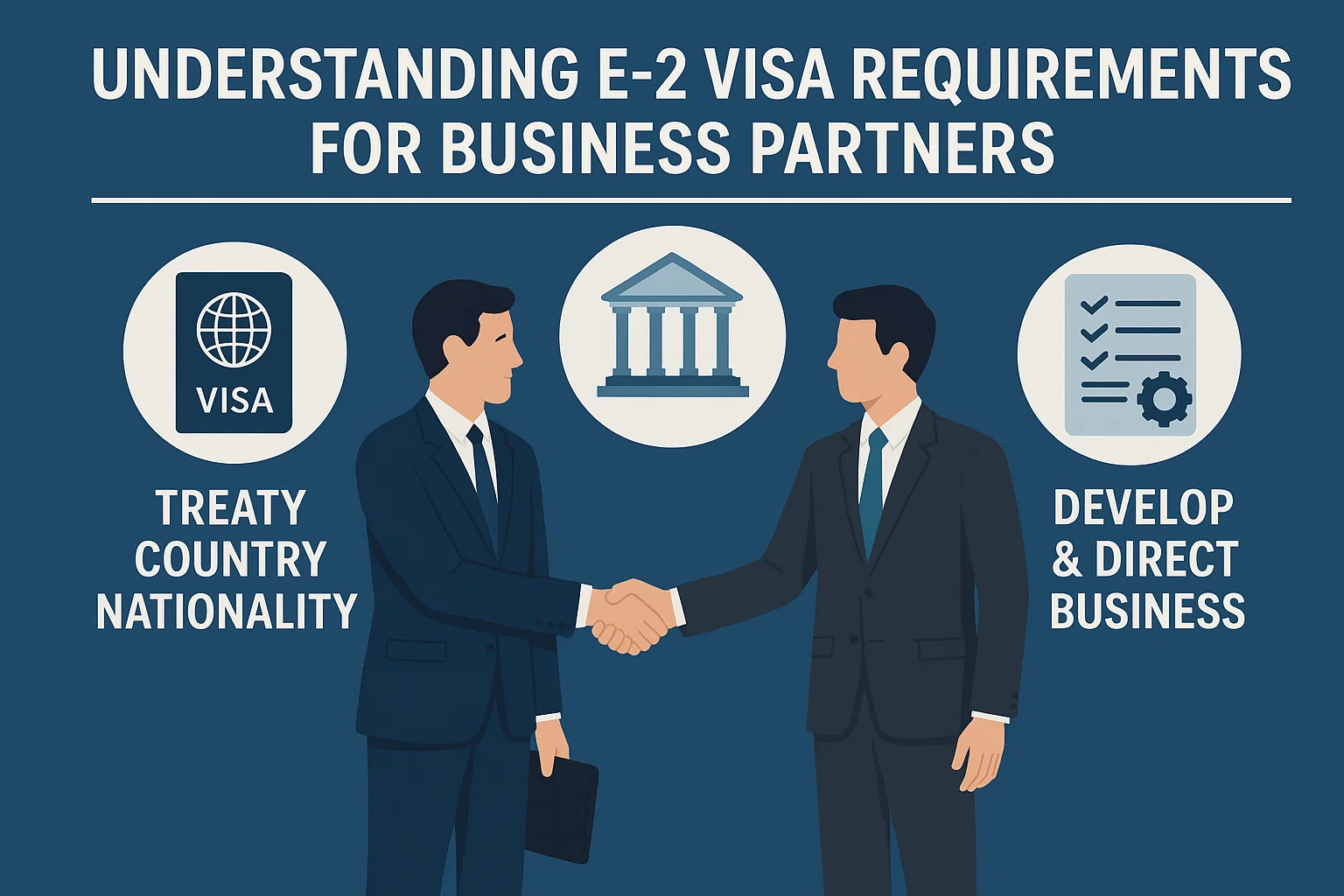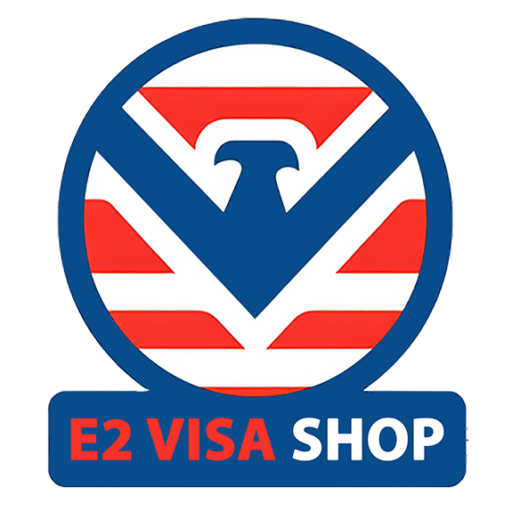
When foreign nationals seek to invest in the United States under the E-2 visa program, partnerships are a common structure. However, the E-2 visa has specific rules regarding ownership, control, and nationality that every partner must understand. Whether you’re forming a joint venture or entering into a family-run business, this guide outlines how partnerships can qualify for the E-2 investor visa.
1. Treaty Nationality Requirement
To qualify, the investor must be a national of a country that holds an E-2 treaty with the United States. When multiple partners are involved:
- At least 50% of the U.S. business must be owned by nationals of the same treaty country.
- For example, two Canadian citizens each owning 50% satisfy this requirement.
- A mix of nationalities is permitted only if the treaty country partner(s) retain controlling ownership (≥50%).
2. Each Investor Must Make a Substantial Investment
For each partner seeking an E-2 visa:
- The individual must personally invest a substantial amount in the business.
- The investment must be at risk and committed to the business operations.
- The funds must be traceable to a lawful source and not simply loans secured by business assets.
Note: A common mistake is assuming one partner can invest while another “rides along” with E-2 status. That is not allowed unless the second person is a dependent spouse.
3. Active Role in the Business is Required
Each E-2 visa applicant must demonstrate that they:
- Will develop and direct the business;
- Are not passive investors;
- Will take on an active, controlling role, such as CEO, Director of Operations, or Financial Manager.
This requirement eliminates purely silent partners from E-2 eligibility, unless they are applying as spouses or employees.
4. Ownership and Control Thresholds
- A 50/50 ownership structure is acceptable if both partners are treaty nationals and actively involved.
- Any investor owning less than 50% of the business must prove they retain control through other mechanisms, such as a managing partner agreement or majority voting rights.
- U.S. citizens or non-treaty nationals cannot be majority owners unless the treaty country investor(s) retain at least 50% control.
5. Spouses vs. Business Partners
Spouses can either:
- Apply as E-2 dependents, with employment authorization to work in the U.S., or
- Apply individually as E-2 investors, if both meet all visa requirements.
It is generally more efficient for one spouse to apply as the investor and the other as a dependent, unless there is a specific legal or business reason for both to apply separately.
6. One Business, Multiple Visas
The USCIS and consulates allow multiple E-2 visas to be issued for partners in the same business, assuming:
- Each investor meets the nationality and substantial investment requirement;
- The business is real, operating, and not marginal;
- Each applicant has a defined, active role.
7. Proof of Lawful Source of Funds
Each investor must:
- Show bank transfers, sale of assets, inheritance, or income statements proving the origin of the funds;
- Demonstrate personal control of the investment funds before they are committed to the U.S. business;
- Provide affidavits, transaction records, and bank statements if funds were gifted from another individual.
8. Key Structural Considerations for Partnerships
When forming the U.S. entity:
- Use proper legal formation (LLC, Corporation, etc.).
- Clearly document the percentage of ownership for each partner.
- Ensure corporate documents, share certificates, and operating agreements reflect the structure presented in the E-2 applications.
Conclusion: Partnership Structures Are Viable, But Require Strategic Planning
E-2 visa partnerships can offer flexibility, shared capital, and operational synergy—but they must be carefully structured to ensure both compliance and approval. The key lies in meeting the investment, nationality, control, and active role requirements for each individual partner.
If you are considering entering the U.S. market under the E-2 program with a partner, working with experienced consultants or advisors can help avoid missteps and streamline the approval process.
